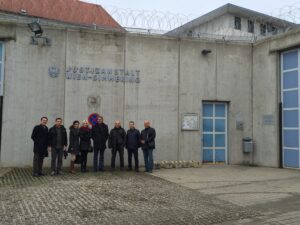
Implementation of the Priority Actions in Climate Change Sector
The Project’s overall objective is to achieve alignment of the North Macedonia’s legislation with the EU climate action legislation, and creation of an enabling environment for the successful implementation of the priority mitigation actions developed under the Long-term Strategy on Climate Action. The project’s specific objective is to

Supporting the Implementation of the Regional Waste Management Systems
The project aims are to support the North Macedonia in establishment of the regional waste management structure in the East and North-East Regions. To achieve its aims, the Project will be implemented through the following main activities: • Development and implementation of Regional Waste Management Public Awareness Program

Technical Assistance for Improvement of Enforcement Services in Prisons (DEPAR)
There was a general recognition that standards and conditions in Turkish prisons needed to be improved and brought into line with international norms, particularly those operating in the EU in the context of closer EU-Turkey integration.

Technical Assistance on Mental Health Care and Drug Addiction Treatment Services in Prisons
Mental health and drug addiction are challenges for penitentiary systems all over the world. The purpose of this project was to tackle these issues in Turkish prisons and to bring the country’s penal services into line with international and European standards.

Technical Assistance for Increased Public Understanding and Enhanced Stakeholder Capacity on the Required Joint Efforts on Climate Action
İklimIN began its implementation with the aim of increasing national and local capacity to prepare medium and long term climate actions towards climate resilient and low carbon development, increasing public understanding to foster joint climate action efforts which will result in gradual alignment with the EU climate policy

Technical Assistance for Support to the Local Human Rights Boards and Women’s Rights Awareness
Despite laws being passed in the 1990s to eliminate discrimination against women and a law to protect survivors of domestic violence being enacted in 1998, the country lags behind in implementing its national and international gender equality commitments. Women in Turkey continue to face challenges, with gender-based violence

